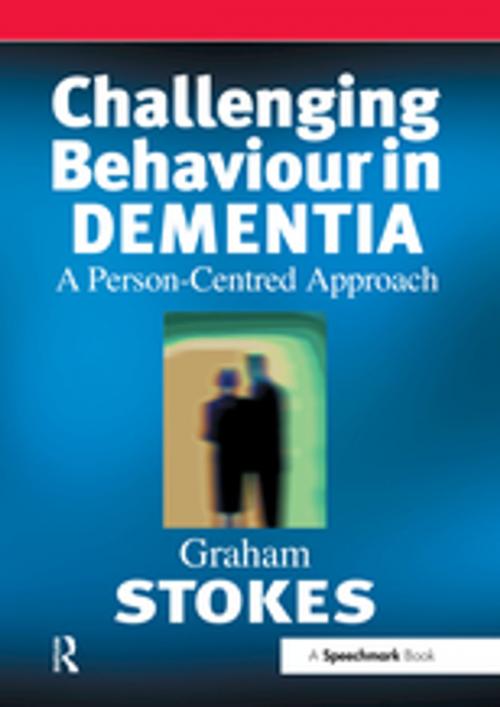Challenging Behaviour in Dementia
A Person-Centred Approach
Nonfiction, Reference & Language, Education & Teaching, Special Education| Author: | Graham Stokes | ISBN: | 9781351686785 |
| Publisher: | Taylor and Francis | Publication: | July 5, 2017 |
| Imprint: | Routledge | Language: | English |
| Author: | Graham Stokes |
| ISBN: | 9781351686785 |
| Publisher: | Taylor and Francis |
| Publication: | July 5, 2017 |
| Imprint: | Routledge |
| Language: | English |
Understanding socially disruptive behavior in dementia is never easy. Most explanations offer neither solace nor solutions for families and carers, and treatment is often characterized by policies of control and containment. The result of Graham Stokes' 15 years of clinical work with people who are challenging, this book: disputes the traditional medical model of dementia and asserts that if we reach behind the barrier of cognitive devastation and decipher the cryptic messages, it can be shown that much behavior is not meaningless but meaningful. It contrasts the medical interpretation that sees anti-social behavior as mere symptoms of disease with a person-centered interpretation that resonates change and resolution. It offers a radical and innovative interpretation of challenging behavior consistent with the new culture of dementia care, focusing on needs to be met rather than problems to be managed.
Understanding socially disruptive behavior in dementia is never easy. Most explanations offer neither solace nor solutions for families and carers, and treatment is often characterized by policies of control and containment. The result of Graham Stokes' 15 years of clinical work with people who are challenging, this book: disputes the traditional medical model of dementia and asserts that if we reach behind the barrier of cognitive devastation and decipher the cryptic messages, it can be shown that much behavior is not meaningless but meaningful. It contrasts the medical interpretation that sees anti-social behavior as mere symptoms of disease with a person-centered interpretation that resonates change and resolution. It offers a radical and innovative interpretation of challenging behavior consistent with the new culture of dementia care, focusing on needs to be met rather than problems to be managed.















